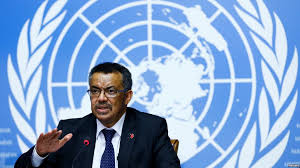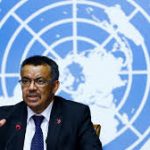By Haruna Gimba
The World Health Organisation (WHO) has alerted countries to the increasing trend of resistance to HIV drugs detailed in a report based on national surveys conducted in several countries.
WHO warns that the growing threat could undermine global progress in treating and preventing HIV infection if early and effective action is not taken.
The WHO HIV drug resistance report 2017 shows that in 6 of the 11 countries surveyed in Africa, Asia and Latin America, over 10 per cent of people starting antiretroviral therapy had a strain of HIV that was resistant to some of the most widely used HIV medicines. Once the threshold of 10 per cent has been reached, WHO recommends those countries urgently review their HIV treatment programmes.
WHO Director-General, Dr Tedros Adhanom Ghebreyesus, said antimicrobial drug resistance is a growing challenge to global health and sustainable development. “We need to proactively address the rising levels of resistance to HIV drugs if we are to achieve the global target of ending AIDS by 2030,” he said.
HIV drug resistance develops when people do not adhere to a prescribed treatment plan, often because they do not have consistent access to quality HIV treatment and care.
Individuals with HIV drug resistance will start to fail therapy and may also transmit drug-resistant viruses to others. The level of HIV in their blood will increase, unless they change to a different treatment regimen, which could be more expensive – and, in many countries, still harder to obtain.
Of the 36.7 million people living with HIV worldwide, 19.5 million people were accessing antiretroviral therapy in 2016. The majority of these people are doing well, with treatment proving highly effective in suppressing the HIV virus. But a growing number are experiencing the consequences of drug resistance.
WHO is therefore issuing new guidelines to help countries address HIV drug resistance. These recommend that countries monitor the quality of their treatment programmes and take action as soon as treatment failure is detected.
“We need to ensure that people who start treatment can stay on effective treatment, to prevent the emergence of HIV drug resistance,” Director of WHO’s HIV Department and Global Hepatitis Programme, Dr Gottfried Hirnschall said.
“When levels of HIV drug resistance become high we recommend that countries shift to an alternative first-line therapy for those who are starting treatment,” he added.
Health Reporters gathered that the WHO HIV drug resistance report 2017 as co-authored by the Global Fund to Fight AIDS, Tuberculosis and Malaria, and the Centers for Disease Control and Prevention, USA.



